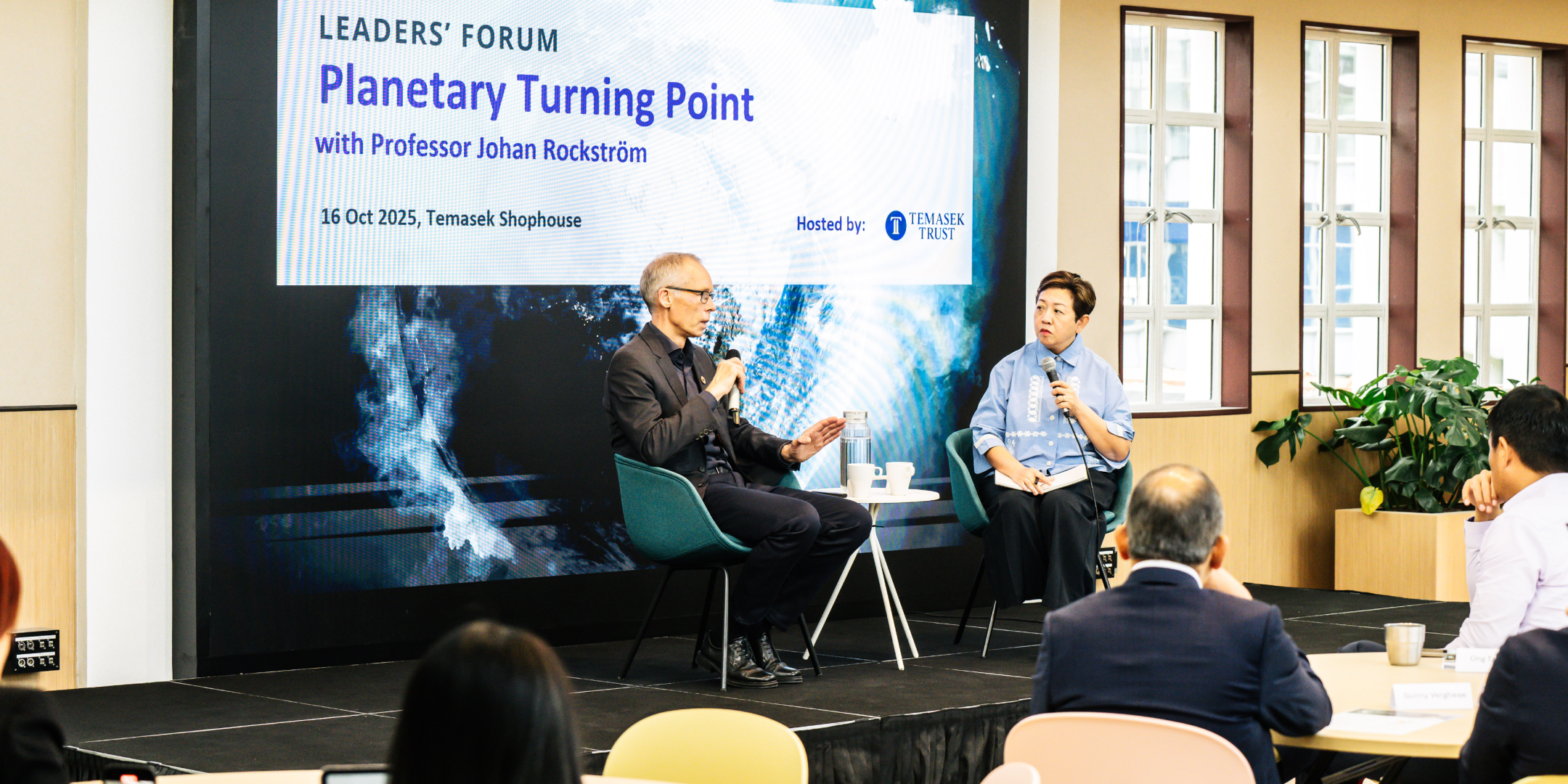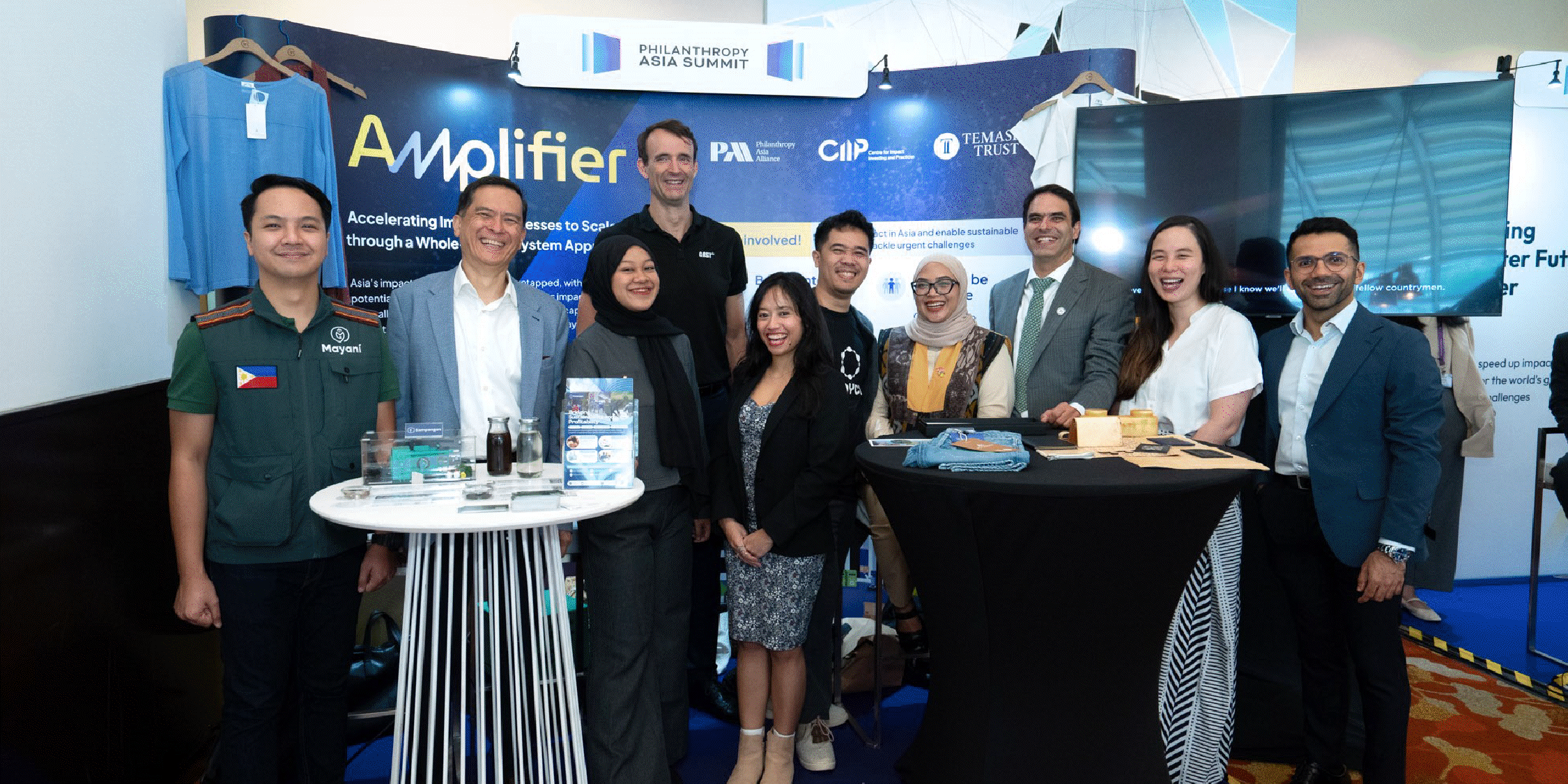The Leaders’ Forum: Planetary Turning Point, hosted by Temasek Trust at Temasek Shophouse, convened eminent leaders from the public, private, and philanthropic sectors for a dialogue with Professor Johan Rockström, Director of the Potsdam Institute for Climate Impact Research and Professor in Earth System Science at the University of Potsdam.
The forum explored how humanity stands at a critical juncture in safeguarding the Earth’s systems that sustain life and prosperity.
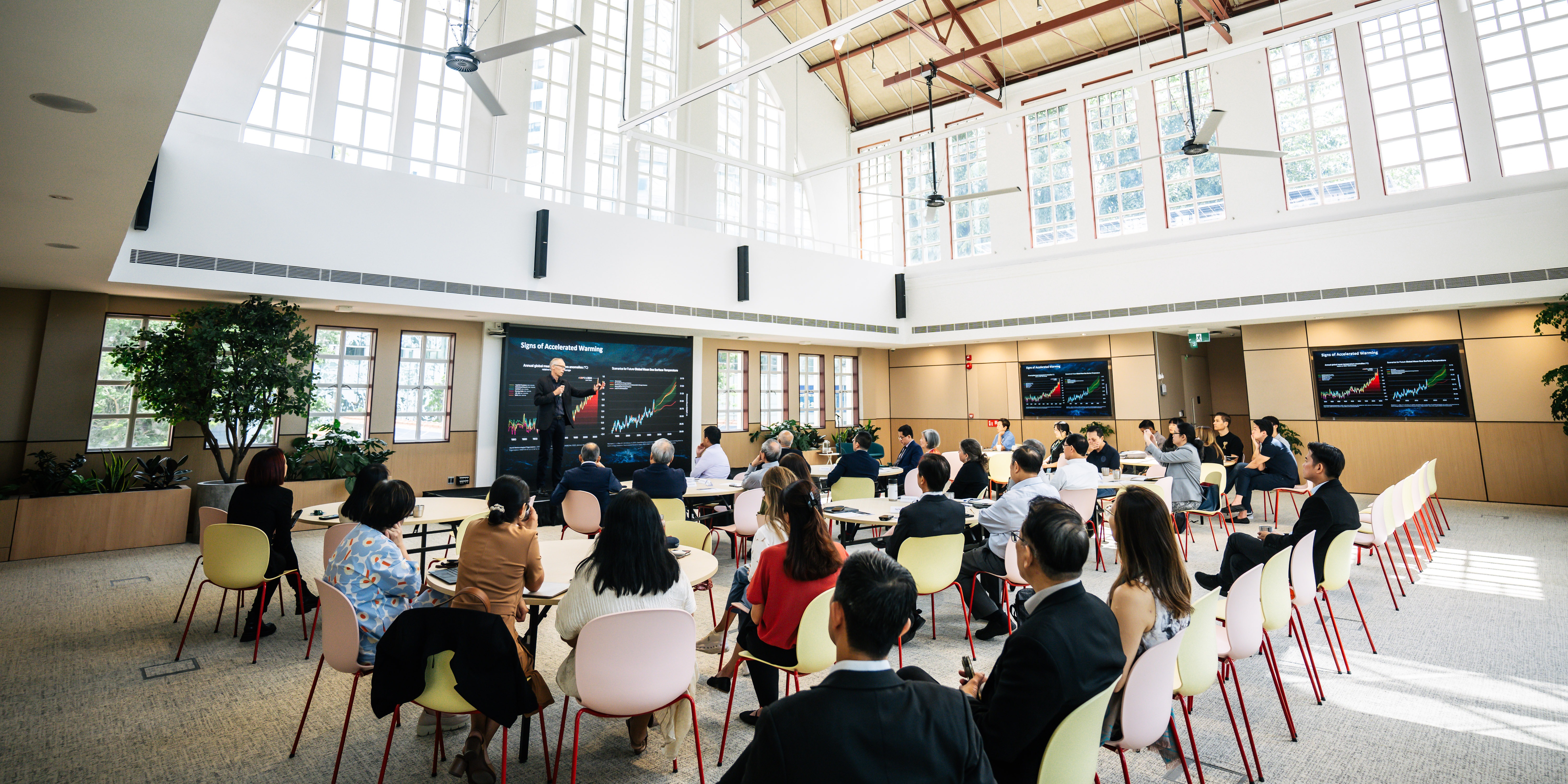
Professor Rockström warned that the planet risks entering a “hothouse” trajectory — where self-reinforcing warming and ecological decline could undermine human well-being. To remain within “Holocene-like” stability — the climate conditions under which humanity has thrived — urgent systemic transformations are needed across energy, food, land, and financial systems within this decade.
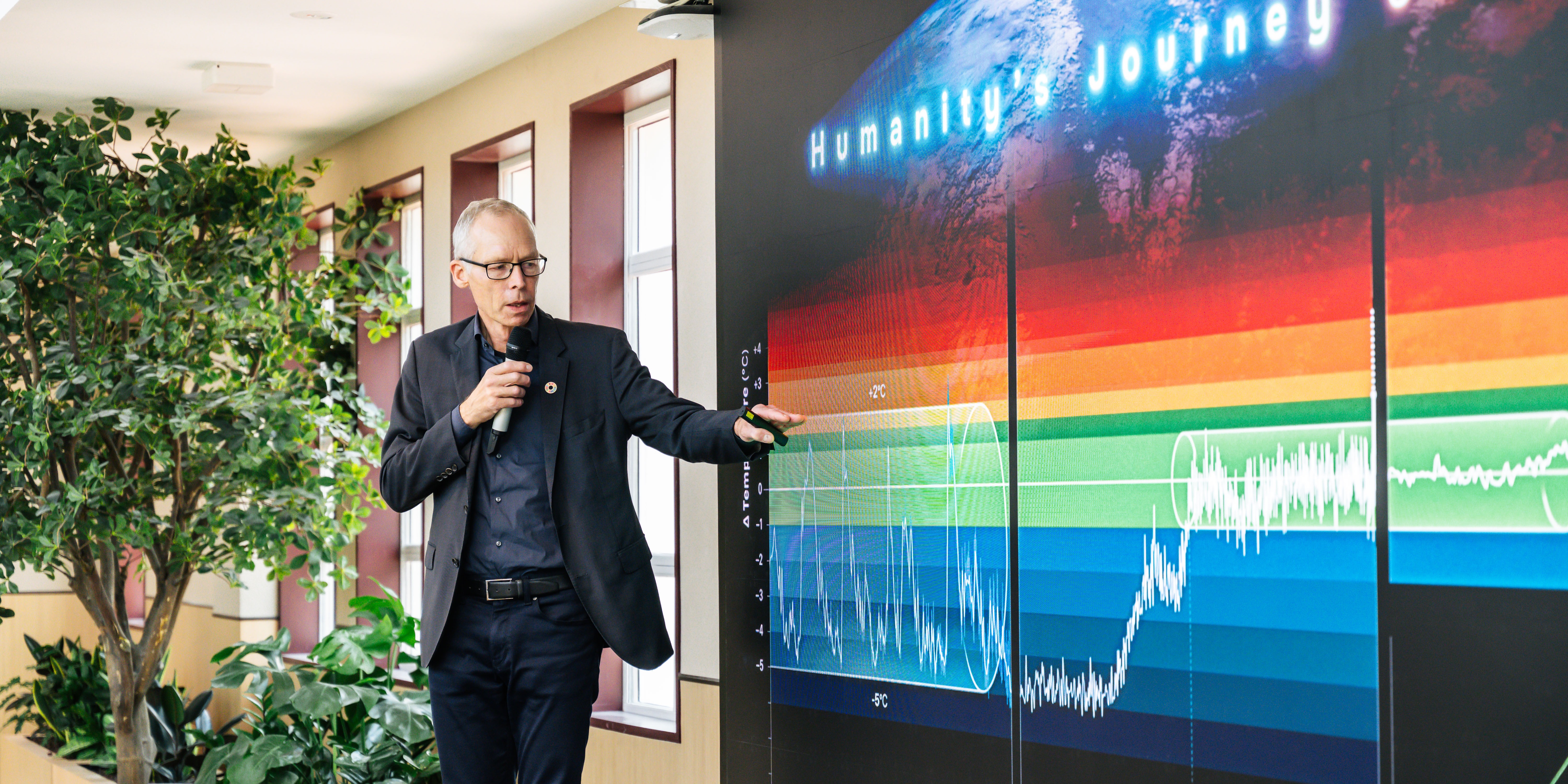
Key Insights
- Planetary Boundaries Breached: Seven of nine planetary boundaries — spanning climate change, biodiversity loss, freshwater use, nutrient cycles, and pollution — have now been exceeded, weakening Earth’s resilience.
- Declining Natural Buffers: Nature continues to absorb around half of human emissions, but this capacity is eroding. Forests such as the Amazon are shifting from carbon sinks to net emitters.
- High Overshoot: The global temperature has exceeded 1.5°C above pre-industrial levels. The science tells us that we are going to hit 1.7°C of overshoot, triggering more intense heatwaves, freshwater extremes, and mass displacement of people.
- Asia’s Central Role: Asia sits at the intersection of vulnerability and opportunity — driving global growth while increasingly leading in renewables, electric mobility, and nature-based solutions. Regional choices can shape global outcomes.
- Leadership Imperative: The private sector can demonstrate that sustainability and profitability can align through science-based targets and transparent data. Governments can accelerate change through carbon pricing and fiscal incentives.
- Science-Based Monitoring: A Planetary Boundary Initiative using satellite and AI data is being developed to track planetary health in real time and enhance global accountability
Levers for Collective Action
- Accelerate the Energy Transition — Scale renewables, electrify transport and industry, and phase out fossil fuel subsidies. Introduce carbon pricing to reward low-carbon innovation.
- Transform Food and Diet Systems — Shift towards sustainable, largely plant-based diets; reduce food waste; and scale regenerative agriculture that restores soil health and biodiversity.
- Protect and Restore Nature — Conserve forests, mangroves, and wetlands as carbon sinks and buffers against climate shocks.
- Invest in Carbon Removal and Innovation — Support both natural and technological carbon capture, circular bioeconomy models, and breakthrough climate technologies.
- Embed Real-Time Data and Accountability — Adopt transparent reporting and science-aligned metrics to guide decisions and investments.
- Champion Regional and Global Cooperation — Leverage Asia’s innovation, capital, and partnerships to align growth with planetary boundaries, supported by philanthropy, policy, and multilateral action.
Closing Reflection
While the challenges are profound, the path forward is clear — through collective action, we can build healthier societies, a safer planet, and more resilient economies for future generations.
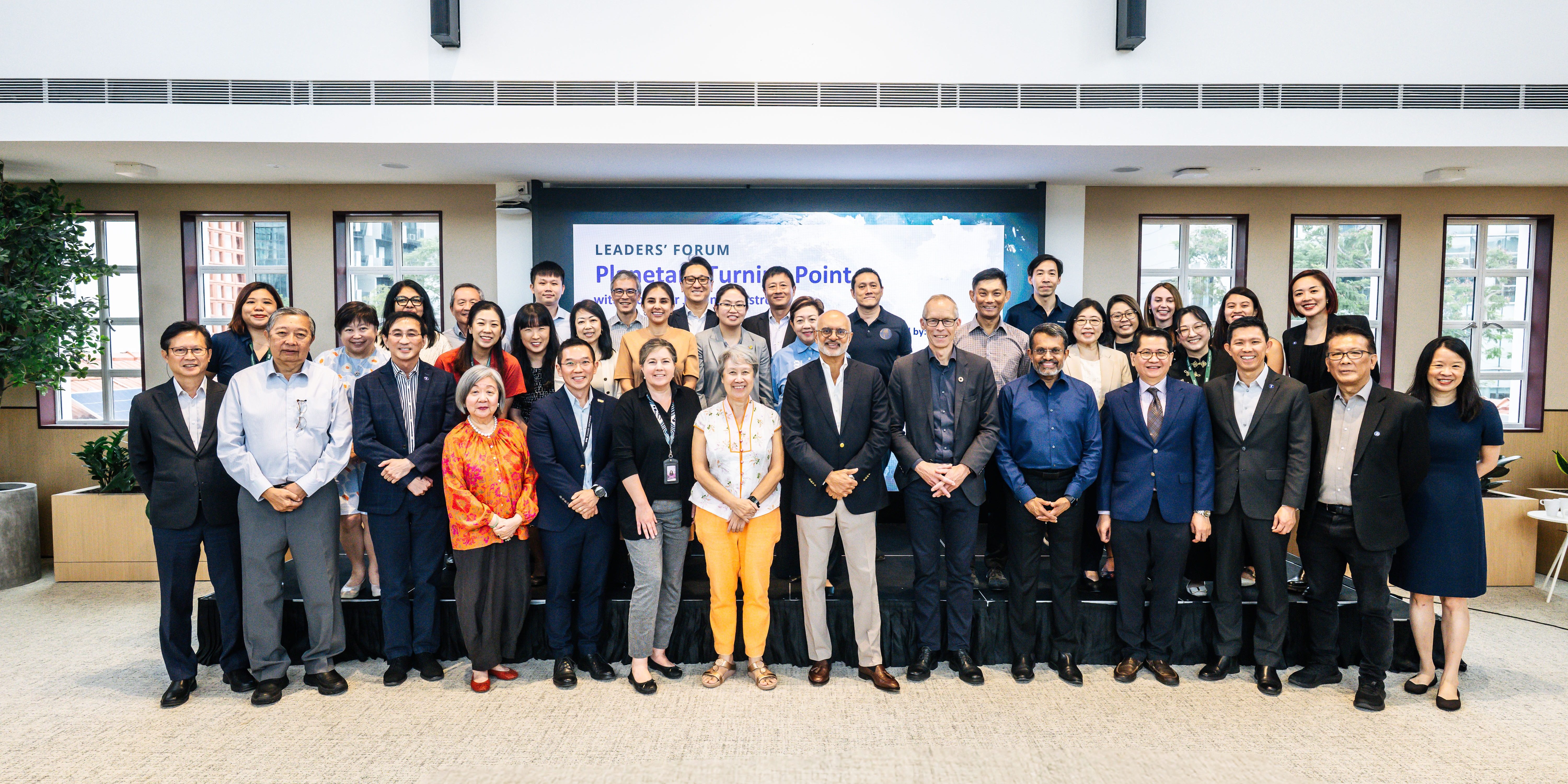
To stay updated, subscribe to our Impact Brief newsletter and follow Temasek Trust on LinkedIn, Instagram, Facebook, TikTok, and YouTube.
